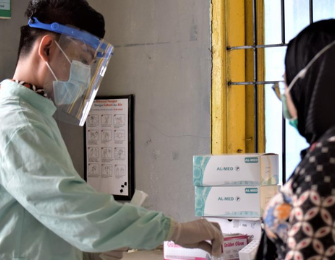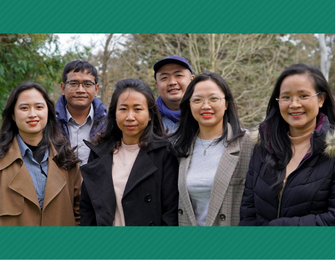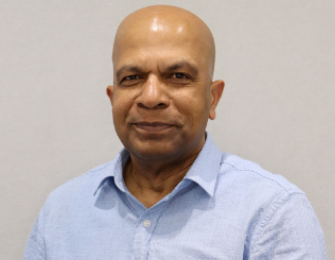
Antigen tests provide certainty and relief to overstretched health workers.
Written by Ardila Syakriah, Health Knowledge Management and Communications Officer, UNICEF
First published by UNICEF.
Indonesian version available here.
A year has passed since a 6.2 magnitude earthquake struck West Sulawesi Province, and its capital city of Mamuju was not spared. Damaged buildings and ruins remain in parts of the town, but for lab analyst Panca Rakhmat, the earthquake also left behind another concern – an increase in COVID-19 cases.
As one of only two lab analysts at Puskesmas Binanga – one of the city’s health centres which covers about 60,000 people – Panca and his colleagues have had few breaks over the past two years. In the immediate aftermath of the earthquake, Mamuju saw a dramatic rise in cases as victims flocked to emergency shelters. Shortly after, another wave hit the city during the country’s battle with the highly infectious Delta variant in mid-2021.
“Health workers have to work in all circumstances because there’s no day off for illnesses,” Panca said as he recalled the weeks he had to live in the puskesmas after the earthquake damaged his house.
Mamuju’s caseload has declined since then, even reaching zero cases at one point. But now, the potential spread of the Omicron variant is causing concern.

However, the availability of rapid tests kits for COVID-19 is helping health workers like Panca with their work. With more supplies of antigen-detecting rapid diagnostic tests (Ag-RDTs) distributed to Puskesmas Binanga among many others in West Sulawesi with the support of the Government of Australia, frequent tests can be done for free in a speedy manner. This helps prevent the spread of the virus in smaller sized cities such as Mamuju, where there is only one COVID-19 referral hospital to treat patients, as it facilitates timely isolation and contract tracing.
“We can have the diagnosis quickly, meaning we can provide the patients with prompt treatment,” Panca said.
Muhammad Yusman, who works as Puskesmas Binanga’s sole surveillance worker, says the antigen tests have helped with early detection and screening, especially during the year-end holidays when more people were travelling. With only 15 minutes needed to obtain the test results and a similar accuracy level as the gold-standard Polymerase Chain Reaction (PCR) tests, the antigen test kits have significantly lessened the burden on health workers.
As PCR lab capacity in Mamuju was limited, health workers previously had to take a 10-hour bus ride to send samples to labs in Makassar, South Sulawesi Province. When cases peaked, some district health workers had to spend their nights on the road for days, and the results could take days or weeks to come back to the patients.
“We’re always on alert. We work with local authorities to make sure that people coming to our town are tested to prevent transmission,” Yusman said.
 Aside from keeping the community safe, improved testing also helps protect health workers. Rindima, a dental therapist at Puskesmas Binanga, recalled that her work had to be suspended several times early in the pandemic after patients and health workers tested positive. After receiving the antigen test kits in 2021, however, she has been able to provide dental services without interruptions as all patients are screened before they receive treatment.
Aside from keeping the community safe, improved testing also helps protect health workers. Rindima, a dental therapist at Puskesmas Binanga, recalled that her work had to be suspended several times early in the pandemic after patients and health workers tested positive. After receiving the antigen test kits in 2021, however, she has been able to provide dental services without interruptions as all patients are screened before they receive treatment.
Main Photo: © UNICEF/UN0594438/Al Asad On 3 February 2021, lab analyst Panca Rakhmat prepares to use antigen test kits that detect the virus that causes COVID-19 at the Binanga Health Centre in Mamuju, West Sulawesi Province, Indonesia.
Additional Photo: © UNICEF/UN0594485/Syakriah On 3 February 2021, dental therapist Rindima tends to a patient at the Binanga Health Centre in Mamuju, West Sulawesi Province, Indonesia. Early in the pandemic, Rindima had to suspend her work several times after her patients and fellow health workers tested positive for COVID-19. After receiving antigen test kits in 2021, however, she has been able to provide dental services without interruptions as all patients are screened before they receive treatment.




